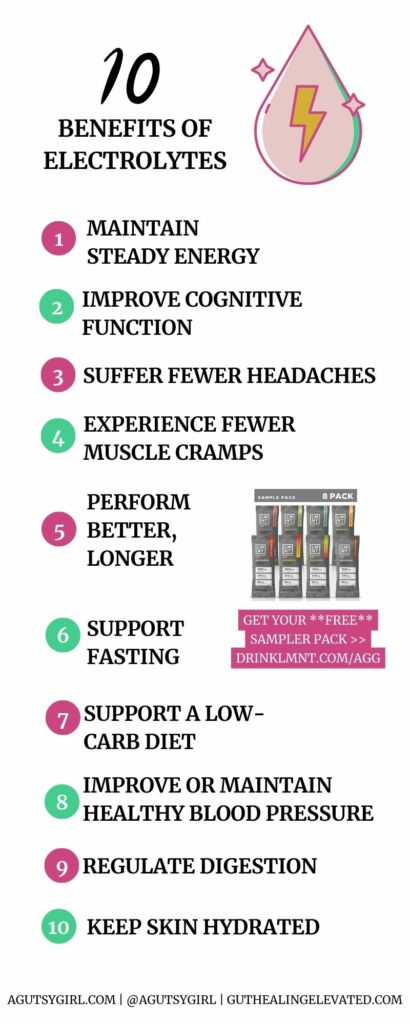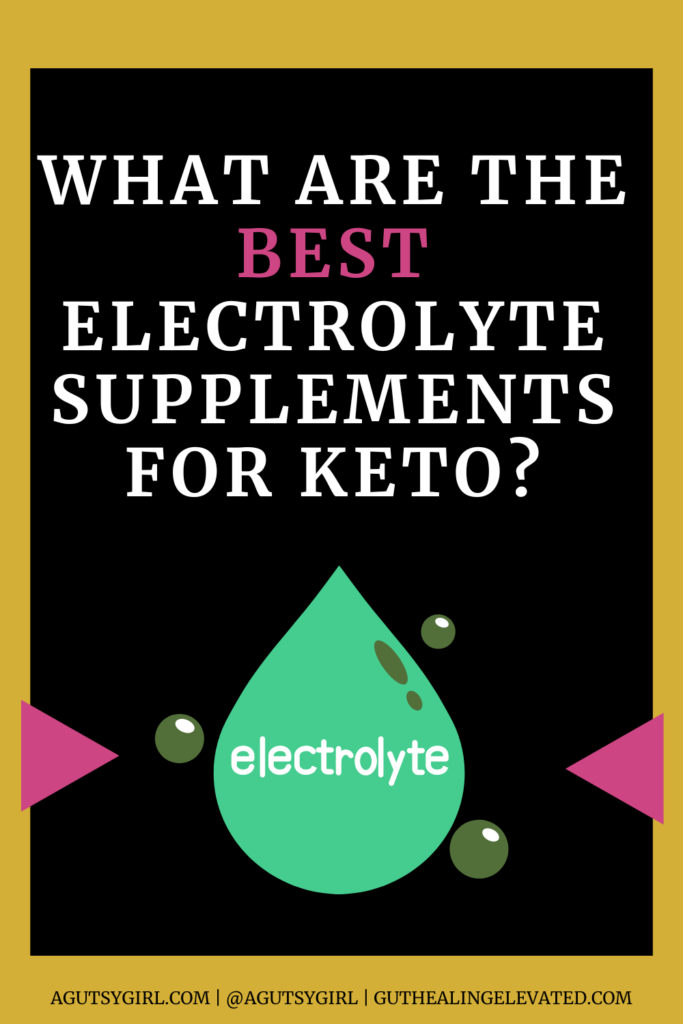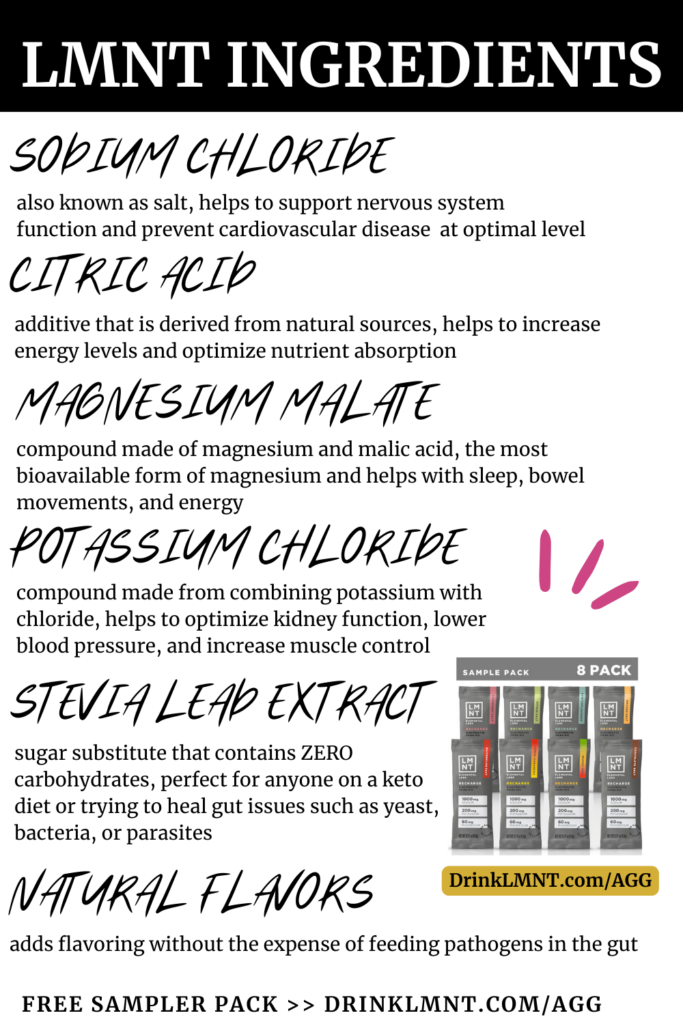What are the best electrolyte supplements for keto?
This is what we are going to address today.
What is the Ketogenic Diet?
Before we can understand what a keto-friendly electrolyte supplement is, let’s start with the basics of a keto diet.
The ketogenic diet is a low-carb, high-fat diet.
Ketosis is a metabolic state the body goes into from a reduction of carbs.
Healthline says, “When this happens, your liver starts producing large amounts of ketones to supply energy for your brain.” And according to them, some signs and symptoms of it include:
- increased ketones in the blood
- increased ketones in the breath or urine
- short-term fatigue
- insomnia
Ketosis changes the way your body metabolizes fat, urging your liver to create ketones to fuel your cells rather than forcing them to rely on the sugar from carb, Maria Emmerich explains.
This can be extremely beneficial to the function of many organs, as well as your general metabolic health, Emmerich says. (source)
Why Choose the Keto Journey
There are many reasons why people choose a ketogenic diet.
Proponents of the diet say it can help with various medical conditions.
Some of these main reasons include:
- Weight loss: One of the primary reasons people adopt a ketogenic diet is for weight loss. The diet is high in fats, moderate in protein, and very low in carbohydrates, which can lead to rapid weight loss for some individuals.
- Blood sugar control: A ketogenic diet can help stabilize blood sugar levels and improve insulin sensitivity, making it beneficial for people with type 2 diabetes or those looking to manage their blood sugar levels more effectively.
- Increased energy: Some individuals report feeling more energized and mentally sharp on a ketogenic diet, as ketones produced from fat metabolism can serve as a more stable and efficient energy source for the brain compared to glucose.
- Appetite control: High-fat and protein-rich foods can help keep you feeling full and satisfied, which may reduce overall calorie intake and curb cravings.
- Improved lipid profile: Despite being high in fat, a ketogenic diet has been shown to improve cholesterol levels in some individuals, raising HDL (good) cholesterol and lowering LDL (bad) cholesterol and triglycerides.
- Epilepsy management: The ketogenic diet has been used for decades as a therapeutic intervention for drug-resistant epilepsy, particularly in children. It’s believed that the ketones produced during ketosis may have anticonvulsant effects.
- Brain health: Some research suggests that a ketogenic diet may have neuroprotective benefits and could potentially be beneficial for conditions such as Alzheimer’s disease, Parkinson’s disease, and traumatic brain injury.
- Athletic performance: While controversial, some athletes and fitness enthusiasts experiment with ketogenic diets to improve endurance and fat adaptation during exercise, particularly in endurance sports where sustained energy levels are crucial.
- Inflammation reduction: Some proponents of the ketogenic diet claim that it can reduce inflammation in the body, which may benefit individuals with conditions characterized by chronic inflammation, such as arthritis.
- Improved gut health: Last (certainly not least) some keto dieters choose it as a way to improve their gut health, which mostly goes back to #9 – reduction of inflammation. When this is taken into account, it’s typically because one is trying to alter the gut microbiome with shifting bacteria (i.e. certain carbohydrates, particularly those high in fermentable oligosaccharides, disaccharides, monosaccharides, and polyols (FODMAPs), can trigger symptoms in people with IBS or other gut disorders. By eliminating or reducing these carbohydrates, the keto diet may provide relief from gut symptoms in some individuals).
There are several versions of the ketogenic diet, including:
STANDARD KETOGENIC DIET (SKD):
This is a very low-carb, moderate-protein and high-fat diet. It typically contains 75% fat, 20% protein and only 5% carbs.
CYCLICAL KETOGENIC DIET (CKD):
This diet involves periods of higher-carb refeeds, such as 5 ketogenic days followed by 2 high-carb days.
TARGETED KETOGENIC DIET (TKD):
This diet allows you to add carbs around workouts.
HIGH-PROTEIN KETOGENIC DIET:
This is similar to a standard ketogenic diet, but includes more protein. The ratio is often 60% fat, 35% protein and 5% carbs.
Only the standard and high-protein ketogenic diets have been studied extensively.
The Ketogenic Diet + Electrolyte Loss
If you have ever tried the keto diet to address any of the above, there is a chance that you have experienced “the Keto flu.”
The Keto Flu
Do you struggle with headaches, muscle cramps, and fatigue on a low-carb diet? AKA, keto flu?
Well, then, you’re probably low on electrolytes—especially not getting enough sodium.
There are two reasons why low-carbers tend to be low on sodium:
- Whole-food keto diets are naturally low in dietary sodium
- You excrete more sodium in a carb-restricted state
The first reason is straightforward.
According to the FDA, 70% of dietary sodium comes from processed and packaged foods. So when you cut out those foods, you cut out your main source of sodium.
The second reason is less obvious. It turns out that carb restriction (which lowers insulin levels) signals your kidneys to excrete more sodium and potassium.
All this means you have fewer electrolytes going in and more going out. It’s a formula for electrolyte deficiencies and keto flu.
The good news? Replenishing those electrolytes can remedy keto flu symptoms fairly quickly!
The problem? Most of the electrolyte products on the market are either loaded with sugar or woefully lacking in actual electrolytes.
Benefits of Electrolytes
Electrolytes are a key component of healthy hydration.
Physiologically, here’s what happens under the hood when your electrolyte levels are dialed in:
- Maintain steady energy. Potassium and magnesium support the processes that convert stored energy (calories) into usable energy (ATP). Electrolytes also impact energy by regulating hormones, maintaining fluid balance and blood pressure, regulating heartbeat, promoting restful sleep, and much more. And no afternoon slump means no need for that extra cup of coffee.
- Improve cognitive function. Electrolytes, especially sodium, regulate fluid balance in and around the brain. They also help transmit signals between neurons—which literally allows us to think. Goodbye brain fog.
- Suffer fewer headaches. Speaking of brain health, chugging plain water can worsen headaches for some people by diluting blood sodium levels. Healthy fluid balance in the brain = water + electrolytes.
- Experience fewer muscle cramps. Electrolytes transmit electrochemical signals to your muscles, instructing them when to contract and relax. Improper hydration—a lack of electrolytes—is one of the leading causes of muscle cramps.
- Perform better, longer. Besides electrolyte deficiency symptoms (literally) cramping your workout, they also support strength training, endurance sports, and any activity that works up a sweat by preventing hyponatremia—a low blood sodium condition that can lead to headaches, brain fog, fatigue, and of course those dreaded mid-workout cramps. Sodium is the main electrolyte lost through sweat, and if it’s not replaced (such as if you only rehydrate with plain water), the body can’t function optimally.
- Support fasting. When you consume carbohydrates, the pancreas secretes insulin to store excess glucose for use later. But insulin serves other purposes as well—such as telling the kidneys to retain sodium. When you stop eating carbs (such as during a fast), the absence of insulin allows the kidneys to release sodium. Replacing that lost sodium with an electrolyte solution can help you continue to feel good on a fast—and since LMNT is zero-sugar, it won’t break a fast.
- Support a low-carb diet. Low-carb diets are sometimes referred to as “fasting-mimicking diets.” Just like fasting, low-carb diets minimize the release of insulin, which signals your kidneys to excrete sodium. The fewer carbs you eat, the more sodium you lose—and the more sodium you need to replace.
- Improve or maintain healthy blood pressure. Consuming fewer than 3 grams of sodium per day is associated with higher rates of adverse cardiovascular events and death. After all, electrolytes help send the signals that tell the heart to beat, and low blood sodium levels can stress the body (raising blood pressure). Adequate potassium intake can also improve hypertension by relaxing blood vessel walls.
- Regulate digestion. Proper fluid balance and electrolyte intake (especially potassium and magnesium) support healthy digestion. Potassium helps the muscles in the gut contract and push digesting food forward through the intestines, while magnesium helps the muscles ahead of the food relax to allow it through.
- Keep skin hydrated. Hydrated skin is happy skin. Since proper hydration is about fluid balance and not just water intake, hydrating with electrolytes can help you keep your skin beautiful: fewer cracked lips and dry patches.
- Get better sleep. Quality sleep is critical to look, feel, and perform your best. Magnesium increases GABA, a neurotransmitter known for producing calming effects. And consuming adequate levels of sodium can help you sleep through the night because low sodium levels increase cortisol and adrenaline.

For a litany of information about the benefits of hydration and electrolytes, check out science.drinklmnt.com.
What are the best electrolyte supplements for keto?
Click HERE to save this article for later.

So, then, IF you and your medical practitioner determine the best way to go about your gut health issues is through some form of the ketogenic diet, what do I think is the best electrolyte dietary supplement to support your daily routine?
The answer: LMNT, a keto electrolyte powder (that’s easy to add into so many things!).
And here’s why:
The body excretes electrolytes at an increased rate due while in a low-carb, ketogenic, or fasted state. This can cause low-carb fatigue or what some call “keto fog.”
- If you’re on a low-carb diet, your low-insulin state results in excreting more sodium through urine. As a result, you need more sodium to feel your best.
- Whole-food diets like paleo and keto are naturally low in sodium. According to the FDA, 70% of sodium in the American diet comes from processed foods. If you eliminate processed foods, you also may be eliminating essential sodium.
- “Low carb Flu” or “Keto Flu” is the #1 problem in low-carb lifestyle, paleo, and keto communities. Symptoms of Keto Flu include headaches, fatigue, and muscle cramps. Dialing in your sodium often abates many symptoms.
Similar to the low-carb flu, electrolytes can make the difference between feeling great and feeling like garbage (due to electrolyte imbalances) on a fast.
LMNT is also PERFECT for the keto diet, as it contains zero sugar or carbohydrates.
This follows the low-carb diet of keto, while still supporting the entire body as a whole.
LMNT Ingredients
One of my all time favorite parts of this product is the LMNT ingredients list.
There are only six ingredients in this electrolyte mix (and no artificial sweeteners!), three of them being the actual electrolytes themselves.
Sodium Chloride
The first ingredients is salt, otherwise known as sodium chloride. This electrolyte is found in the highest amount of the mix and for good reason.
The latest nutritional science studies shows that a salt intake between 4-6 grams is optimal for preventing health complications such as stroke and cardiovascular disease.
This means that high amounts of salt are NOT a bad thing. As with everything, moderation is key.
Citric Acid
Citric acid is an additive that is found in many common foods. It helps to keep the ingredients more fresh for longer and bump up the flavor.
This ingredient, while not entirely naturally occurring in this case, actually has some health benefits.
These include:
- increasing energy production levels
- increases nutrient absorption
- optimizes kidney health
This additive is considered extremely safe and can actually help with full body health.

Magnesium malate
This compound is a form of magnesium that is created by combining magnesium with malic acid.
It is known to be one of the most bioavailable magnesium sources, meaning that the body can easily absorb it.
Magnesium is an incredibly important electrolyte that helps support sleep, healthy bowel movements, energy synthesis, and exercise performance.
It has also been shown to reduce the risk of medical conditions such as type 2 diabetes by lowering blood sugar.
Potassium chloride
This is a compound made by combining potassium with chlorine.
Its use in the electrolyte blend is in the potassium content, which makes it a great electrolyte.
Potassium helps support full-body health by optimizing kidney function, lowering blood pressure, and playing a role in muscle contraction.
Natural flavors
This ingredient is simply a collection of various flavors from natural ingredients.
Stevia Leaf Extract
Stevia is a type of natural sugar substitute made from the stevia plant. It contains zero calories, carbohydrates or added sugar, which means that it does not promote the overgrowth of pathogens in our gut such as yeasts, bacteria, and parasites.
This makes stevia a great option for anyone trying out the ketogenic lifestyle or simply attempting to heal their guts.
Get the Best Electrolytes Today!
If you’re looking to get enough electrolytes in your daily routine today, the LMNT electrolytes are a great way to do so.
- Try electrolyte supplementation with LMNT totally risk-free. If you don’t like it, give it away to a salty friend and they will give you your money back, no questions asked.
- They have a VERY low return rate and high reorder rate.
- The LMNT electrolytes come in a stick pack, which makes traveling with them super simple!
- LMNT sends new boxes and refunds immediately. They consistently hear that LMNT customer service is the best (no-BS) customer service around. If needed, you can send your complaints straight to them (hello@drinkLMNT.com) and they will make it right.
If you liked this post on the best electrolyte supplements for keto, you might also enjoy:
- Sugar Free Electrolytes Drinks (and common electrolyte misconceptions)
- Fasting to Cure SIBO {thoughts on Intermittent Fasting for SIBO} {Episode 53, AGG Bites #8}
- Interesting Facts About the Immune System {Plus 13 Science Backed Ways to Boost Your Immune System}
Xox,
SKH
🤰 bloating be gone! weight loss through optimal gut health for women
💃ʜᴇᴀʟ ʏᴏᴜʀ ɢᴜᴛ. ʜᴇᴀʟ ʏᴏᴜʀ ʟɪfe.
🫶🏻 founder gutbyome.com



![Best Teas for Stress and Depression [11 Teas to Boost Mood]](https://agutsygirl.com/wp-content/uploads/2022/05/tea-stress-hormones-featured.png)


